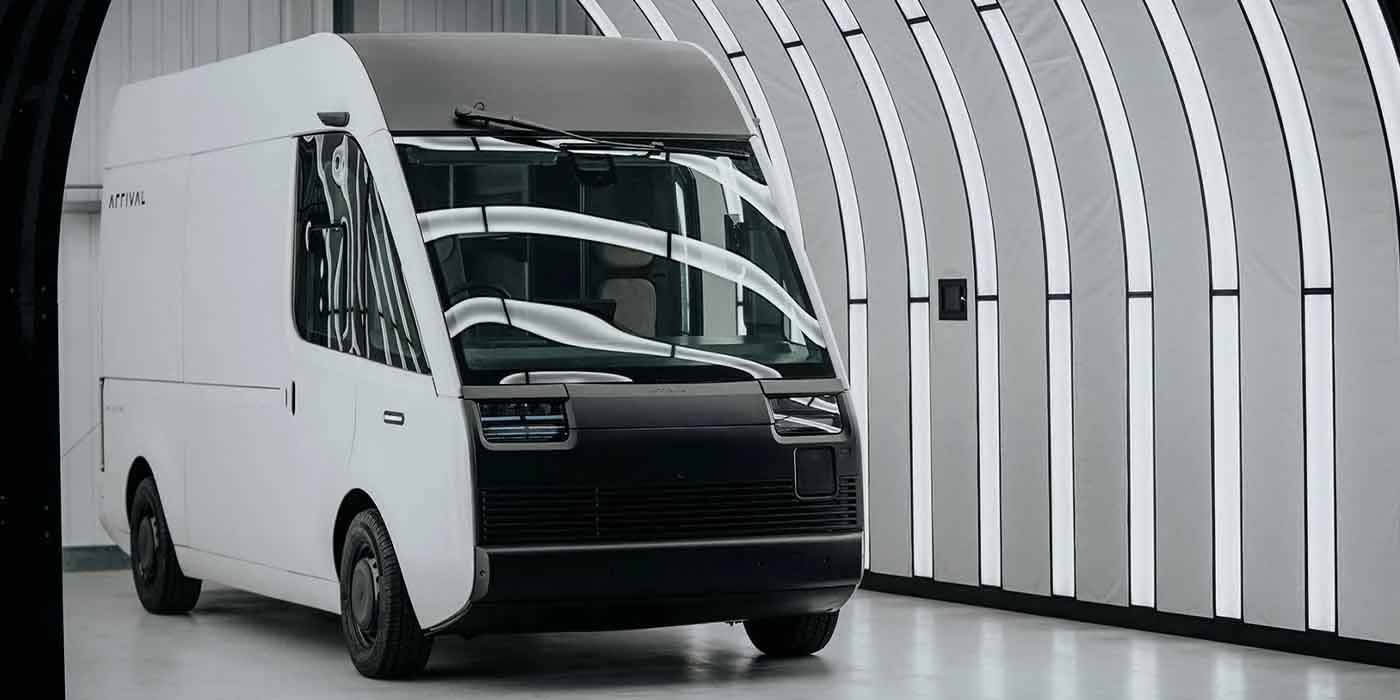Arrival (ARVL) nabs $300M in capital, yet US Van production remains underfunded

UK-based EV startup Arrival has garnered a fresh $300 million in equity financing in hopes it can slow the financial bleeding that has plagued it in recent months. As previously announced layoffs and cost cuts take effect, Arrival expects the funding to help slow its cash-burn rate, but says it will need to raise even more in order to begin Van production in the US next year.
The post Arrival (ARVL) nabs $300M in capital, yet US Van production remains underfunded appeared first on Electrek.
UK-based EV startup Arrival has garnered a fresh $300 million in equity financing in hopes it can slow the financial bleeding that has plagued it in recent months. As previously announced layoffs and cost cuts take effect, Arrival expects the funding to help slow its cash-burn rate, but says it will need to raise even more in order to begin Van production in the US next year.
Arrival ($ARVL) is an UK-based startup focused on delivering urban-centric mobility by way of its last-mile Arrival Van, although at one point the EV developer was soaring high in innovation, also developing an all-electric passenger bus and a rideshare-specific Arrival Car designed alongside Uber.
Like many young startups, Arrival’s need for massive amounts of funding took its toll over time. Following its public offering via an SPAC merger in March of 2021, Arrival’s stock value has tumbled, leading to an announcement last summer that it would be reorganizing its business to focus solely on Van production, halting Bus and Car development.
By October of 2022, Arrival announced it was pivoting its EV business once again, shifting its focus to US production after citing significant costs to scale overseas and a less-than-stellar at-the-market (ATM) platform. The revised strategy mentioned the cutting of “cash-intensive activities,” including staff salaries, particularly “a sizable impact on the company’s global workforce, predominantly in the UK.”
By November, Arrival president and chief of strategy Avinash Rugoobur resigned for personal reasons, and CEO Denis Sverdlov stepped down into a new role as chair of the board. Simultaneously, Arrival had received a letter of compliance because its stock share was too low. The company has until May to get its stock over $1.00 to avoid being delisted. As of this morning, shares are listed at $0.148.
Still, the startup fights on. Its former EVP of digital Igor Torgov will took over as company CEO in late January alongside the unfortunate news that it would be cutting its staff of 1,600 in half. Arrival hopes that these cuts alongside the funding announced today will help it stay liquid through 2023 while it tries to raise additional funding to reach scaled production.
Arrival’s late-2024 Van production feels quite far away
While today’s funding news should be encouraging from those fortunate to remain on staff at Arrival, the EV startup is by no means out of the red yet and has a long road ahead of it to actually reach Van production.
According a report from Automotive News Europe, Arrival believes the $300 million in equity financing from Westwood Capital will help it hit its targeted cash burn rate of $35 million each quarter, at least by the second half of this year. That’s when much of the aforementioned cash cuts and layoffs will take full effect.
The startup also said that the additional capital combined with the measures above should provide more liquidity to the business, at least enough to keep it going until late 2023. Still, Arrival isn’t expected to begin Van production at its US microfactory in Charlotte, North Carolina, until late 2024.
To keep the lights on into next year, Arrival said it is kicking off additional fundraising efforts focused on its targeted Van production timeline. To settle the previously mentioned issue with the Nasdaq listing, Arrival recently called for a meeting of shareholders to vote on a reverse stock split proposal to regain compliance. At the end of 2022, Arrival had approximately $205 million in cash and cash equivalents.
FTC: We use income earning auto affiliate links. More.
